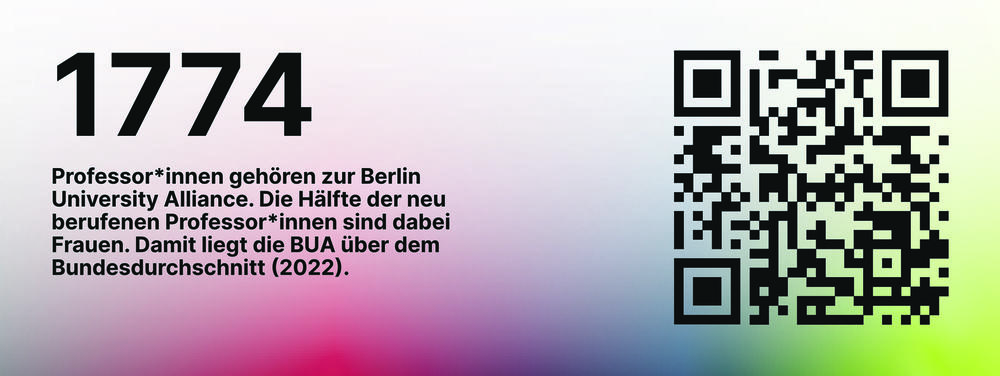The 100 most important minds in Berlin science. Episode 3: They shape what sustains us in everyday life
Oct 01, 2025
Whether architects, engineers, or structural biologists, these researchers shape our living space and lifelines in the broadest sense—and can thus also make everyday life easier.
- Assistant Professor Inka Mai (Technische Universität Berlin): Will our houses soon be coming out of 3D printers? Inka Mai is researching this construction method and sees enormous advantages. In an old AEG factory hall, Mai is working with robots and 3D printers on automated manufacturing processes for buildings. At the same time, she is developing new building materials for 3D printers. These include sustainable printed concretes and mixtures based on clay that do not require any climate-damaging cement. All of this also impressed the jury of the Berliner Wissenschaftspreis (Berlin Science Award): Mai won the 2025 Young Scientist Award.
-
Nammyoung Hong (Technische Universität Berlin): This TU student is bringing an almost forgotten piece of history back on track. She received the Berlin State Office for the Preservation of Historical Monuments' study prize for her master's thesis on the Wuhlheide park railway. The railway was built in the 1950s in connection with the Free German Youth (FDJ) and served to provide children with vocational training in the spirit of socialism. Hong not only documented the structural development of the facility, but also placed it in the historical and ideological context of the GDR.
-
Prof. Dr. Christian Spahn (Charité - Universitätsmedizin Berlin): Understanding ribosomes unlocks the basis of all life on Earth: ribosomes. Christian Spahn, one of the world's leading structural biologists, wants to understand the mechanical movements that assemble individual building blocks into enzymes, structural elements of the cell, or other tiny machines on a molecular scale. This knowledge could be used, for example, in the production of artificial proteins or vaccines. The European Research Council (ERC) awarded this project €2.5 million in funding.
-
Prof. Dr. Mike Schlaich (Technische Universität Berlin): The civil engineer traveled through twelve countries in southern and eastern Africa in six months. He documented his journey in the impressive book “Building in Africa.” In it, Schlaich reflects on his role as an “old white man,” writes soberly about problems and potential, and thinks constructively in the truest sense of the word.
-
Prof. Dr. Hans Börner (Humboldt-Universität zu Berlin): Strong adhesives that can be easily removed at the touch of a button are becoming important in many applications in microelectronics and technology. The chemistry professor is developing the basis for this in the “Idefix” project. It could also be used to produce radio-controlled medicated patches that deliver drugs to the body in a smart way. He has now also been honored by the European Research Council.
-
Prof. Dr. Alexander Scheffold (Technische Universität Berlin): The immune system is very active in certain structures in the body, such as the thyroid and pancreas. However, this can also lead to an overreaction, causing immune cells to attack the body itself. Scheffold wants to test this hypothesis with the help of millions in EU funding. Based on this, vaccinations or therapies against autoimmune diseases would be conceivable. He is part of a new research center at the Technische Universität Berlin, “The Simulated Human,” which is currently being established.
-
Prof. Dr. Michael Franz (Technische Universität Berlin): Power supply, waterworks, or railway systems—all critical systems. But they are sometimes based on shaky foundations. Often, there is a computer somewhere in the basement with outdated control software that keeps everything running. Franz wants to modernize these systems automatically, check them for vulnerabilities, and thus make them more secure. His project is also being funded with millions from the ERC.
They were all featured today in the Tagesspiegel (October 1, 2025) as part of the series “The 100 most important minds in Berlin science". Read more in the Tagesspiegel (T+, in German).

